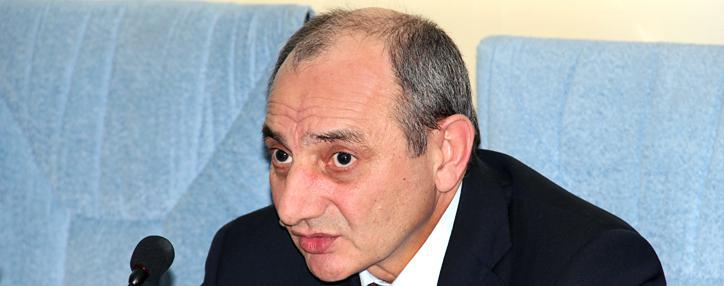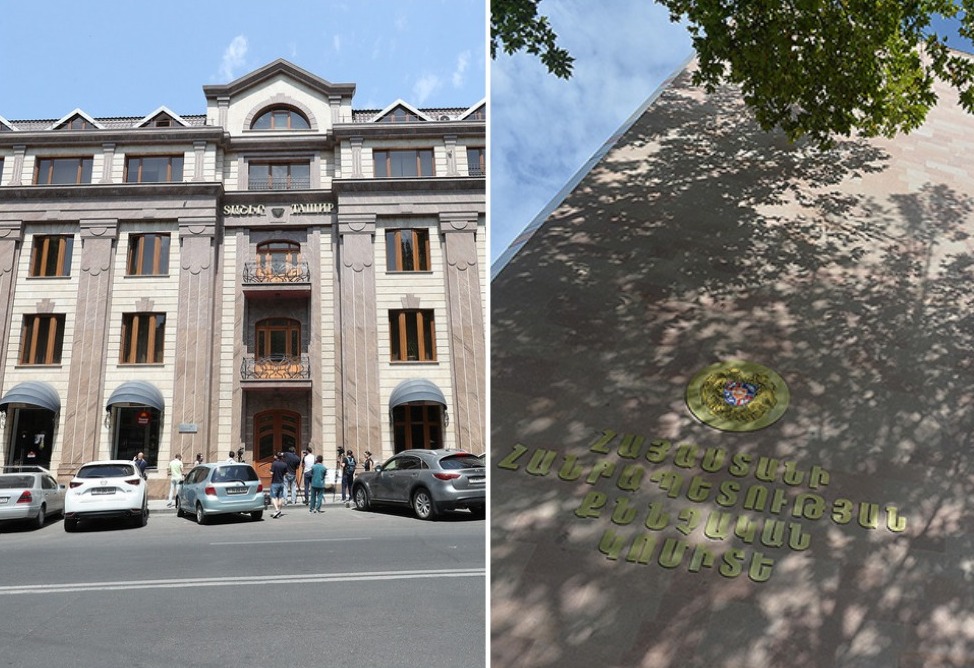NKR President: extradition of Safarov to Baku and his pardon violate democratic principles, international community must condemn it
04.09.2012,
13:53
During Monday’s meeting with the Security Council President of Nagorno-Karabakh Republic Bako Sahakyan said extradition of Ramil Safarov, who killed the Armenian officer in Budapest, to Azerbaijan and his pardon are a severe defiance of the democratic principles and human rights, and must be condemned by the international community.

YEREVAN, September 4. /ARKA/. During Monday’s meeting with the Security Council President of Nagorno-Karabakh Republic Bako Sahakyan said extradition of Ramil Safarov, who killed the Armenian officer in Budapest, to Azerbaijan and his pardon are a severe defiance of the democratic principles and human rights, and must be condemned by the international community.
The Azeri serviceman, Ramil Safarov, was given a life sentence for hacking Armenian officer Gurgen Markarian to death with an axe on 19 February 2004 in Budapest during NATO training. On 31 August Budapest extradited Safarov to Azerbaijan where he was immediately pardoned by President Ilham Aliyev.
These actions erupted outrage in Yerevan. On 31 August Armenia’s President Serzh Sargsyan invited the heads of all diplomatic missions in Armenia to the extraordinary meeting and said Armenia suspends all diplomatic relations with Hungary.
Mr. Sahakyan said this criminal deal couldn’t leave the Armenians worldwide, including Artsakh (Armenian name for Karabakh), indifferent. According to him, by its actions Azerbaijan showed the whole world the hideous moral, psychological and political atmosphere it currently has, which is a continuation of fascist ideology and genocide.
Bako Sahakyan referred to this appalling step as a serious slap to the peace negotiation process and the mission of OSCE Minsk Group. Mr. President also added that the actions of Azerbaijan, its aggressive behavior cannot and will not be ignored any longer.
International mediators from the OSCE Minks Group said on Monday that Azerbaijan's decision to pardon an Azeri soldier who killed an Armenian officer had damaged the peace process in the region.
Mr. Sahakyan made some instructions to Defense and Foreign Affairs Ministries, as well as other interested structures.
During the meeting economic results over the past 8 months were also discussed.
Leader of the Artsakh Diocese of the Armenian Apostolic Church Archbishop Martirosyan Pargev and other officials were present at the meeting.
The conflict in Nagorno-Karabakh broke out in 1988 after the predominantly Armenian-populated Karabakh declared about secession from Azerbaijan.
As Azerbaijan declared its independence from the Soviet Union and removed the powers held by the Karabakh’s government, the Armenian majority voted in 1991, December 10, to secede from Azerbaijan and in the process proclaimed the enclave the Republic of Nagorno-Karabakh. Full-scale fighting, initiated by Azerbaijan, erupted in the late winter of 1992. International mediation by several groups including Europe's OSCE’s failed to bring an end resolution that both sides could work with.
In the spring of 1993, Armenian forces captured regions outside the enclave itself. By the end of the war in 1994, the Armenians were in full control of most of the enclave and also held and currently control seven regions beyond the administrative borders of Nagorno-Karabakh. Almost 1 million people on both sides have been displaced as a result of the conflict. A Russian- -brokered ceasefire was signed in May 1994 and peace talks, mediated by the OSCE Minsk Group, have been held ever since by Armenia and Azerbaijan. -0-



